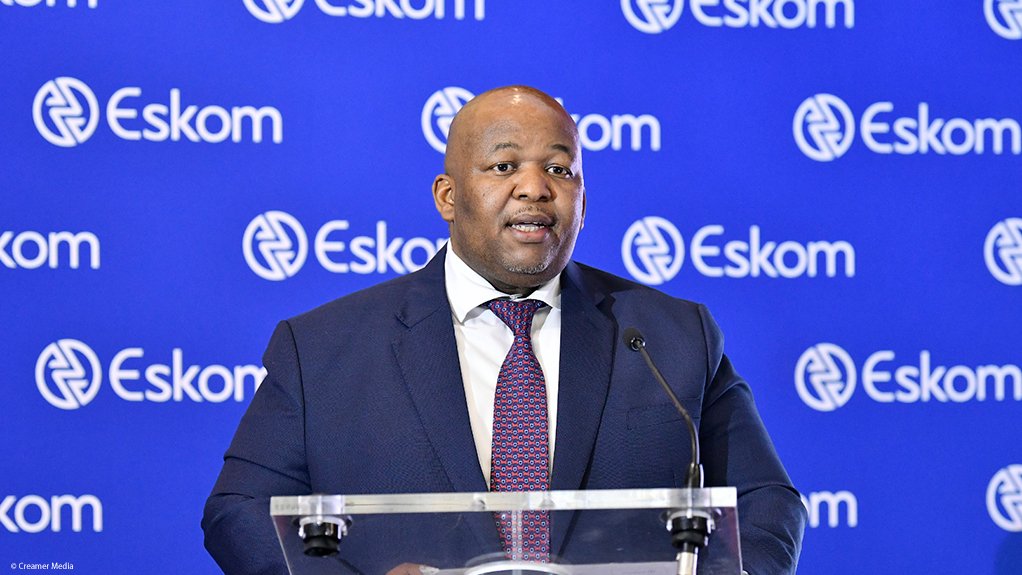Eskom CEO Dan Marokane has rebuffed persistent suggestions that the utility is keeping loadshedding at bay owing to an “excessive” reliance on the diesel-fuelled open cycle gas turbines, reporting that it spent R285-million on diesel during May compared with R2.8-billion in the same month last year and against a budget for the month of R1.7-billion.
Addressing the South African National Energy Association AGM against a backdrop of deep suspicion about how Eskom has managed to avoid resorting to rotational power cuts for 71 days, including over a highly competitive election period, Marokane attributed the stabilisation to the Generation Recovery Plan, which had been under way since March 2023.
“Over the last three weeks I have been hearing commentary about a sudden performance shift, [or] that there's a dramatic improvement.
“Ladies and gentlemen, I'm an engineer myself, and nothing around these systems happens in a dramatic way,” Marokane, who will mark 100 days in office this week, said.
Instead, he argued that the improvement in the coal fleet’s performance was the result of the diligent execution by Eskom employees and original-equipment manufacturers of the interventions outlined in the recovery plan, underpinned by the financial certainty that flowed from the R254-billion debt-relief package extended by the National Treasury.
The performance had been bolstered further by the support Eskom had received from the private partners participating in workstream one of the National Energy Crisis Committee, as well as that from government leaders and officials.
Unplanned breakdowns, Marokane said, had been below 12 000 MW for the past two weeks and had recently dipped below 10 000 MW; a level well beneath the 15 500 MW that Eskom indicated in its winter outlook would trigger Stage 2 loadshedding.
He cautioned, however, that putting “this monster of loadshedding behind us” will require the building of new capacity by the private generators and Eskom, while indicating that Eskom itself had plans to participate more directly in adding renewable-energy and pumped-storage capacity.
Eskom would pursue these projects in partnership with the private sector and had also “decoupled” the projects from the decommissioning of the coal stations, the schedule for which had been extended because of supply shortfalls and to allow for greater community consultation.
EMAIL THIS ARTICLE SAVE THIS ARTICLE ARTICLE ENQUIRY
To subscribe email subscriptions@creamermedia.co.za or click here
To advertise email advertising@creamermedia.co.za or click here











